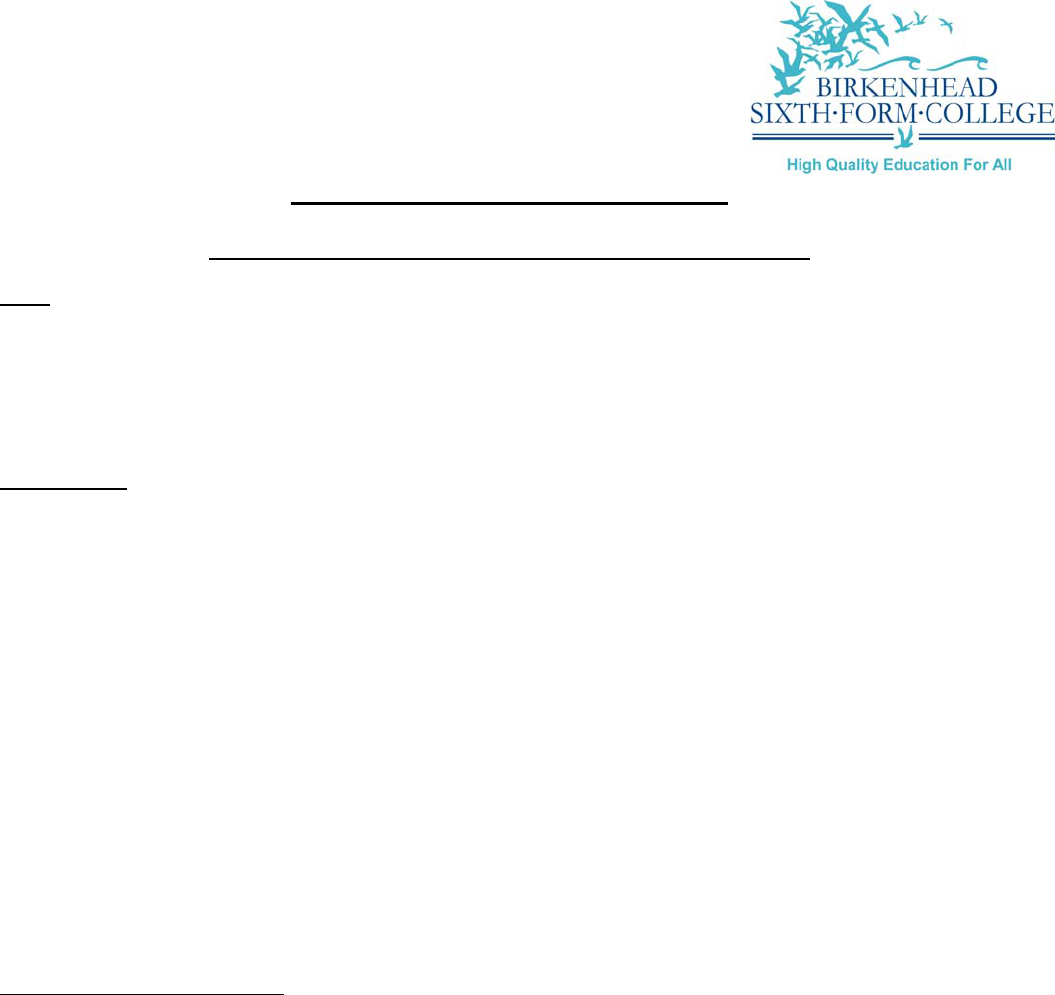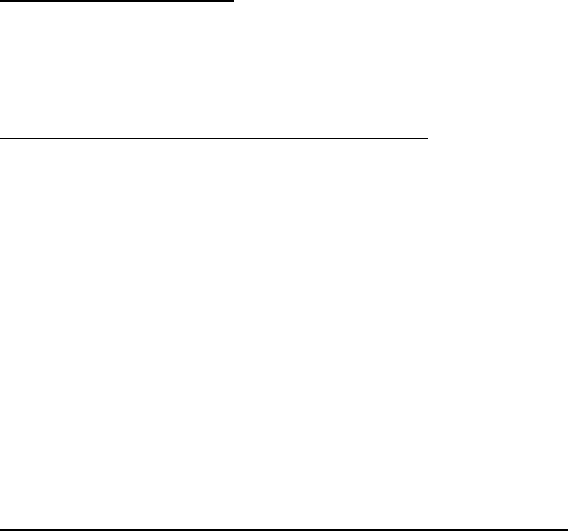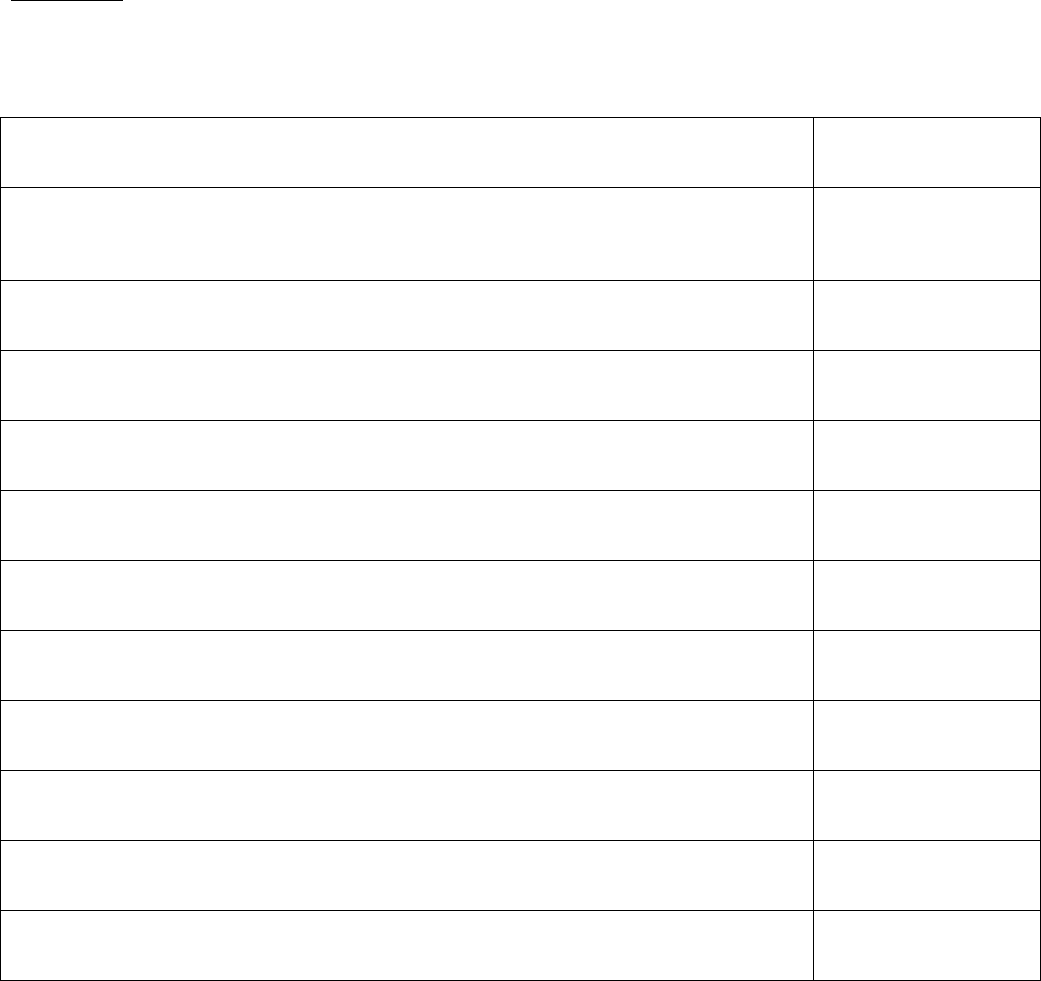
Monitored & Revised April.08 KR
1
BIRKENHEAD SIXTH FORM COLLEGE
ADMISSIONS POLICY FOR FULL-TIME STUDENTS
AIMS
To recruit sufficient students to meet the target number.
To guide each student on to the most appropriate course for his or her individual needs.
To ensure a smooth transition into the College for each individual student.
OBJECTIVES
To provide information to prospective students, to enable them to make informed choices.
To offer the opportunity to prospective students and their parents to visit the College, talk to staff and students.
To offer impartial guidance to students about the entry requirements, progression opportunities and other
implications of their choice of course.
To encourage students in the Partner High Schools to consider carefully their options post 16 and in particular
the opportunities available to them at Birkenhead Sixth Form College.
To make reasonable adjustments to ensure that students with learning difficulties and/or disabilities are able to
access Birkenhead Sixth Form College.
To provide a planned induction programme for new students.
To manage the admissions process to achieve the College’s target number of students.
To ensure that all documentation and practice complies with the college’s Single Equality Scheme and Equal
Opportunities policy and the Disability Discrimination Act (part 4).
CRITERIA FOR ADMISSIONS
General Criteria
Students must have a satisfactory record of effort, attendance, punctuality and conduct
The College must have a suitable programme of study for the individual applicant.
Partner High School Applicants
The College serves as the sixth form for the 11-16 Partner High Schools in Birkenhead:
Park High School
Prenton High School
Ridgeway High School
Rock Ferry High School
Woodchurch High School
Pupils who apply from these schools are guaranteed a place at the College, subject only to the conditions listed
under general criteria.

Monitored & Revised April.08 KR
2
Applicants from Other Schools / Colleges
These are considered subject to:
The general criteria as above.
The target number of students which has been set for that year.
Arrangements for students with learning difficulties and/or disabilities
Taster sessions in the subject of their choice are available for students with learning difficulties and/or disabilities to
ease their transition from school to college. Students with learning difficulties and/or disabilities will have an
individual learning programme that is achievable for them. This may mean they take fewer subjects or may take
longer to complete their course.
APPEALS PROCEDURE
The decision to offer a place is taken by the Assistant Principal (Student Services). If an applicant wishes to
appeal with regard to any decision he / she is advised to make the case in writing to the Principal who will consider
and rule on the matter.
PROCEDURES FOR FULL-TIME STUDENTS
A separate document details the procedures which are currently in operation for admissions of full-time students, it
contains details on
Procedures for applicants from Partner High Schools
Procedures for applicants from other schools / colleges
Student conferences
Registration of new students
Registration of existing students
General Induction
The admissions team
This document is provided as an annex to this policy.
ANNEX
ADMISSIONS PROCEDURES FOR FULL-TIME STUDENTS
Applicants from Partner High Schools
Liaison for recruitment purposes is the responsibility of the Assistant Principal (Student Services) who is the
regular contact with the person responsible for the progression of pupils from Year 11.
A meeting is usually held at each Partner High School in October of each year for these liaison staff with the
Assistant Principal and, if possible, an admissions officer. The purpose of this meeting is to provide and
receive feedback on the admissions process of the previous year and to plan and agree a calendar for
admissions for the coming year and any other relevant developments, for example, changes in curriculum or
accommodation. In addition, the Manager of Learning Support holds a meeting with the SENCO (Special
Educational Needs Coordinator) of each Partner High School to review admissions arrangements and discuss
individual students
The components of the admission calendar are:-
• Talks to all Year 11 pupils in Partner High Schools (November - December).
• Three Open Evenings (two in November one in March ).
• Individual guidance interviews with applicants held in Partner High Schools (January/February)
• Closing date for receiving acceptance slips (March)
• New student conference (July)
• Start of term (August / September)
Monitored & Revised April.08 KR
3
Talks to Year 11 pupils are organised as follows:
A member of the senior management team makes an initial presentation. The College video is shown and then
Year 11 pupils are seen in class size groups when the curriculum on offer at the College is explained in more
detail and questions invited. A number of college students who are past pupils of the school also attend these
smaller groups and answer questions. Each year 11 pupil is given a pack containing information on subject
choices, admissions criteria and an application form.
Other Visits
The College responds to invitations from a Partner High School wherever possible. A representative from the
College, usually one of the senior management team or Student Services Team attends parents’ evenings,
careers conventions, option choices evenings, and industry conferences.
These may involve giving a presentation, providing a display, responding to enquiries or taking a class.
Additional Activities
A range of liaison activities occurs with each Partner High School. These are usually curriculum focused and
may include participation in an annual Maths Challenge, visits to college departments and talking to college
students about specific courses. In addition the college hosts Taster Days for year 10 pupils for each Partner
High School. These take place in late June/early July.
Referrals
If the confidential report from Partner High Schools indicates that the student may not meet one or more of the
general criteria the student is REFERRED. The student is given a letter explaining the referral process. This
requires the student to consult school careers staff and Connexions to investigate fully all the post 16 options
to find a pathway more appropriate to the student’s needs. A further interview date and time are given at which
a parent / guardian is required to attend. The College contacts the student prior to the second interview to
confirm arrangements. If, at this second interview the student is able to present a good case for being offered
a place and make assurances in the presence of a parent / guardian about commitment to meeting the
College’s criteria for entry, the student will be offered a place usually on CONTRACT.
Applicants from other schools / colleges
Applicants from other schools are considered for places at the College and are invited to a guidance interview.
Places are subsequently offered subject to the criteria explained above.
Students who do not meet the general criteria or who are applying for a course or a programme of study which
is fully subscribed are placed on the waiting list and advised to contact the College early in September to see if
a place is available following registration.
If students don’t meet our entry criteria they will not be offered a place. There is a right of appeal to the
Principal.
Late Applications
There are always students who apply to the college during July, August and September.
These applications are dealt with in a similar fashion. All applicants will be interviewed and expected to provide
school reports or a reference. We maintain the same entry criteria although when applicants are very late course
availability may be a factor in offering places.

Monitored & Revised April.08 KR
4
All Admissions
Handling enquiries
Enquiries by telephone and in person are dealt with by the College administration team in the main office. The
office team aim to respond to enquiries within four working days All enquiries are logged onto the computer
and the software tracking system enables information on numbers and individuals to be readily available.
• Open Evenings
Three evenings are held, two in November and one in March from 6.00 – 8.30 p.m. Visitors are invited to talk
to staff and students, to look at the College facilities and to listen to a talk from the Principal. Representatives
from Connexions and Higher Education Institutions are present.
Displays are available in all subject areas and for many cross college activities. The College handbook and
subject leaflets are distributed from an information centre where members of the admissions team are on hand
to answer questions and offer guidance.
Literature
An information pack is distributed to all Year 11 pupils in the Partner High Schools.
A more detailed College Handbook is made available at Open Evenings and at interviews and is sent in
response to enquiries. This contains information on courses, entry requirements, student support, examination
results, destinations, travel and application procedures. Additionally all subjects have leaflets giving more
specific details on content, methodology and assessment which are available at Open Evenings and interviews
and are provided in response to enquiries. In addition, there is an information pack on the learning support
available for students with learning difficulties and/or disabilities. College information is also on the
i-choosewirral web site which year 11 students will be using to access information about post 16 opportunities
and make applications.
REGISTRATION AND INDUCTION
Student conferences
These take place on two consecutive days in July.
The first day is for new students from non Partner High Schools, the second for students from Partner High
Schools
The purpose of the conference is to:
o introduce key staff to the students
o to provide ‘taster sessions’ in subjects
o to give new students an opportunity to meet other students, new and existing
o to enable them to find their way around College
o to provide them with detailed information about arrangements for the start of
o term
o to provide them with an introductory guide to College matters
o to provide up to date travel information.
o to provide support for students with learning difficulties and/or disabilities as required
o to respond to queries / concerns via a help desk
Registration of new students
New students are invited into college for registration on two consecutive days at the start of the Autumn term.
In order for this to be manageable and to offer a worthwhile experience for these students, groups of students
are invited to come in at 15 minute intervals. After an initial welcome and an outline of the registration
procedure, students complete their registration forms, have their exam results checked and are then given an
individual course counselling interview by one of the admissions team. The programme agreed upon is
recorded on a Learning Agreement, signed by the student and counselling staff and stored in the student’s
file. Students have the opportunity to seek specialist subject advice from Heads of Subjects and careers
guidance from a careers adviser prior to making a decision on their programme of study. After this process,

Monitored & Revised April.08 KR
5
the students are able to put their names down for a locker, pay College fund, have travel documents stamped,
apply to join the NUS, complete EMA documentation, sign network users policy and have a photograph taken
for College Learning Card . Finally, each student participates in an electronic initial assessment for literacy
and numeracy and completes a learning styles questionnaire.
Registration of existing students
Information on the timing and procedures for re-registering is given to students during the summer term. Two
days are devoted to this process and students are asked to come in at 15 minute intervals. After a brief
welcome back and an outline of re-registering procedure students who are starting a new course or are in any
way modifying their existing course, are given an individual guidance interview by one of the admissions team.
They have the opportunity to seek specialist subject advice from Heads of Subjects and careers staff prior to
deciding their programme of study. All re-registering students then hand in their learning agreement and
course choices are entered onto the computer, which generates timetables for collection prior to their first
lesson. After this process, the students are able to put their names down for a locker, pay College fund, have
travel documents stamped, apply to join the NUS and complete EMA documentation.
Late registration
Students who for any reason need to register late experience the same process as that described above.
Every effort is made to produce a timetable quickly to ensure that as little teaching time as possible is lost.
THE ADMISSIONS TEAM
The Assistant Principal (Student Services) leads the team who have specific responsibilities for aspects of
admissions. In addition to these three, there is a strong team of trained interviewers comprising all of the
college’s Personal Tutors, the Learning Support Manager and members of the Senior Management Team.
The whole team meets at least twice a year and receives regularly updated guidance material for their
Admissions file. All of the team have experience of conducting guidance interviews and newcomers are
inducted gradually into the process. Admissions team meetings are open to any member of staff to attend as
an observer and a number take advantage of this opportunity and the chance to observe interviews.
QUALITY CONTROL PROCEDURES
A sampling of 10% of new student files occurs each October. Each file is scrutinised to ensure that
admissions guidelines were applied consistently, procedures adhered to and decisions recorded accurately.
Applicants have the opportunity to evaluate every stage of the admissions process and results are analysed
and action taken as required. Observation procedures are in place to ensure interviews are conducted in
accordance with the Admissions Policy.

Monitored & Revised April.08 KR
6
INDUCTION
General Induction
The non subject specific induction programme takes place during the first half term and includes the following:
Timetable distribution
First Day
Student Handbook distributions and discussion of contents especially College Charter /
Complaints Procedure
First week
Talk on Short Course Programme
First week
Talk on Minimum Expected Grades ( 1
st
Year Advanced only)
First week
Talk about Connexions
First week
Briefing about Student Services within the College
First week
Briefing about EMA – expectations and processes
First week
Opting for Short Course Programme
First week
Individual Discussion with Personal Tutor
First three weeks
Discussion of Learning Agreement
First three weeks
Equal Opportunities briefing – policies and expectations of students
First three weeks
Completion of new student questionnaire
By half term
Subject Induction
Subject specific induction takes place during the first half-term as follows:
• Welcome and introduction to staff.
• Issue the Student Handbook (also may be available on the INTRANET) and explain as appropriate:
(a) Structure of programme to include examinations and assessment requirements.
(b) Teaching & learning methods, activities, learning styles.
(c) Support opportunities
(d) Encourage students to further their own progress and make them aware of where the information about
learning support is available.
Monitored & Revised April.08 KR
7
(e) Homework & course work guidelines:
How much and how often? Insist that students record homework set, and check they do so on a regular
basis. Make it clear when work is to be handed in and be consistent.
(f) Progression advice where appropriate eg. Criteria for progression from pre-advanced to advanced.
(g) Health & Safety Information as appropriate:
Underline importance of safe operations. (Get students to sign they have received them and keep the rules
in their file – to be kept to hand).
• Textbooks and Resources:
(a) Issue texts where appropriate, and record the number of the text issued to each student.
(b) Outline textbook / resource availability, including ICT, and access to these.
(c) Supply reading lists.
• Study skills guidance.
(a) How to organise their time and their work.
(b) After a few weeks check the organisation of students’ files. Make suggestions for improvement as
appropriate. Refer to calendar of deadlines, (in course handbook).
(c) Introduce idea of learning style and choosing best method of learning for the individual.
• Availability of study support in N6 for English, maths, time-management, exam technique and support
with coursework
• Induction Programme activities eg. Research using range of sources such as INTRANET, reference books,
Internet.
• Introduction to Value Added (where relevant).
• Introduction to opportunities provided for delivery and assessment of Key Skills in subject.
• Introduce work experience if relevant.
• Subject Heads should also add any tasks specific to the subject.
